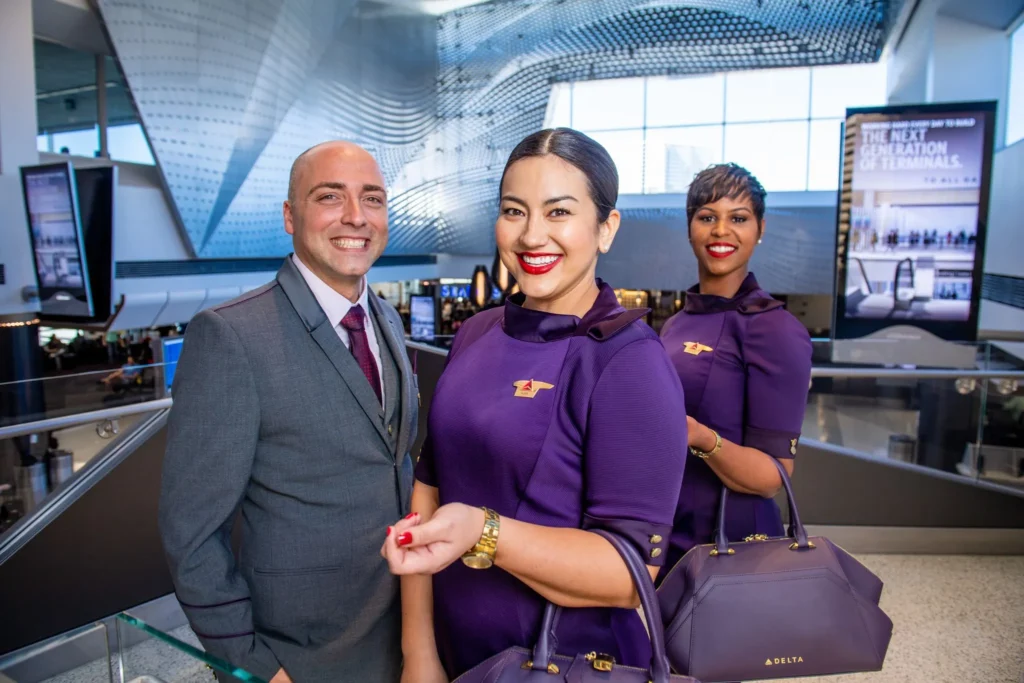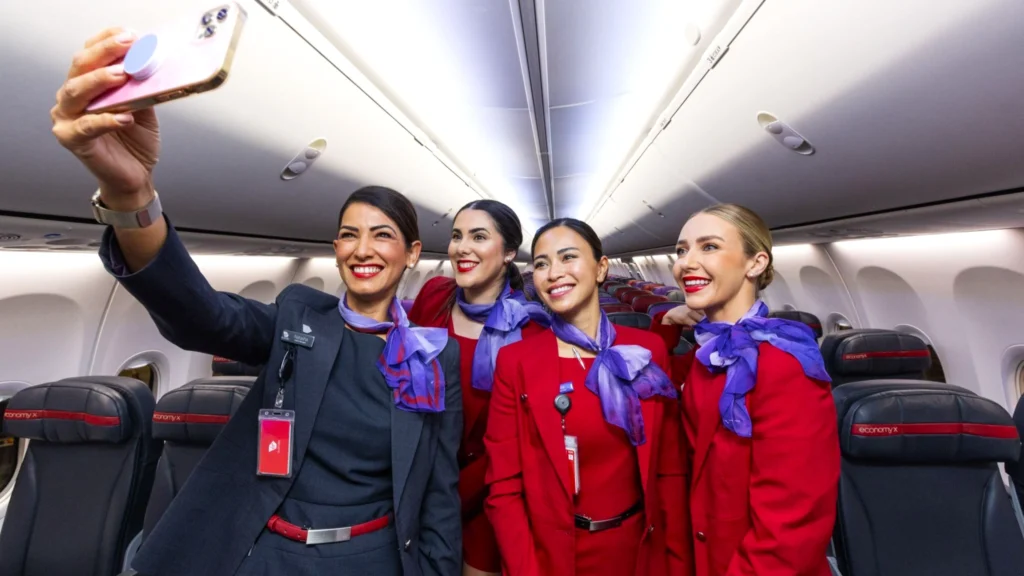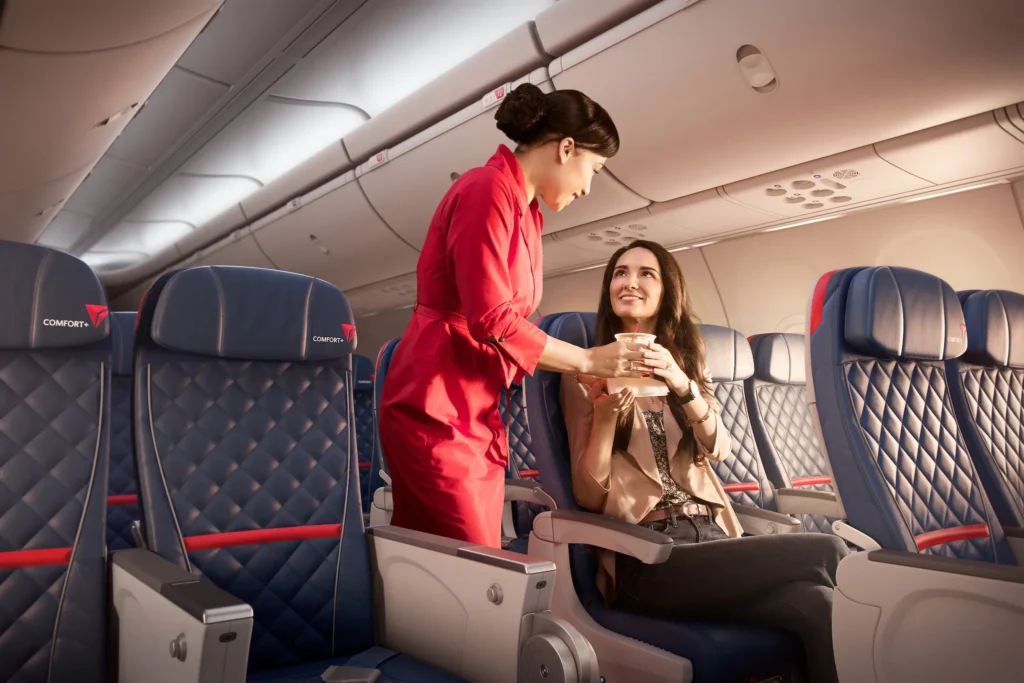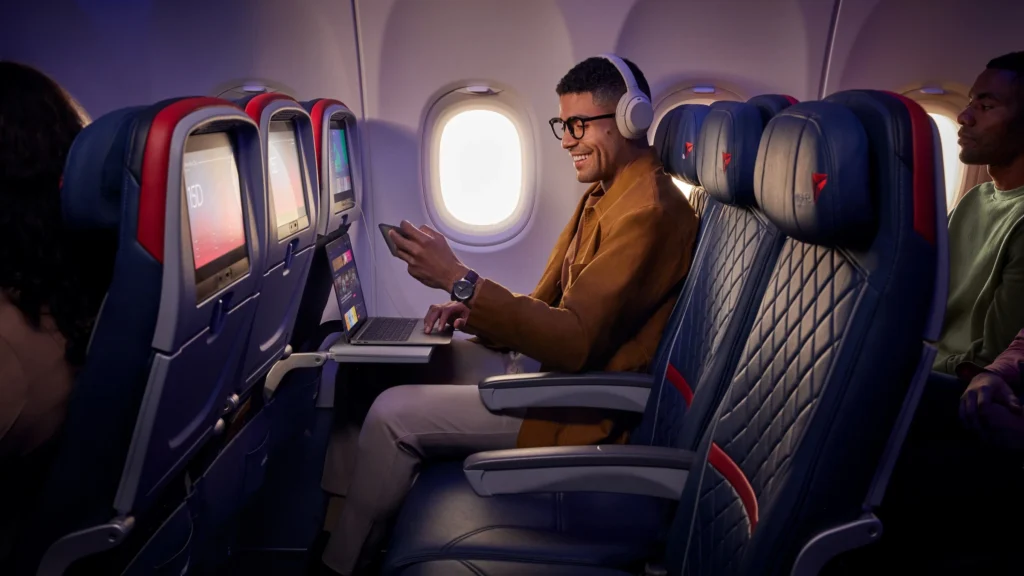
ATLANTA— Delta Air Lines (DL) has officially prohibited flight attendants from wearing personal AI-powered smart glasses during duty hours. The move affects staff at its main hub in Atlanta (ATL) and across its network, citing safety, privacy, and operational concerns.
While consumer interest in wearable AI tech like Apple Vision Pro and Meta Ray-Ban continues to grow, Delta Air Lines has made it clear that such devices are not permitted unless explicitly issued by the airline itself.
 Photo: Delta Air Lines
Photo: Delta Air LinesDelta Bans Attendants from Wearing Glasses
Delta’s policy forbids all front-line employees, including flight attendants, from wearing smart glasses unless the device has been formally issued by the airline.
At present, Delta Air Lines (DL) has not approved any such technology for employee use, making the current policy a blanket ban on all personal AI-enabled eyewear.
This directive comes amid rising interest in wearable AI devices, such as the Apple Vision Pro and Meta Ray-Ban Smart Glasses, both of which feature advanced capabilities like video capture, facial recognition, voice control, and real-time AI communication.
Although some of these devices resemble regular eyewear, they contain powerful integrated hardware, including ultra-wide cameras and open-ear speakers connected to AI assistants.
According to a Delta spokesperson, the decision was part of an “ongoing evaluation to ensure the safety and security of our people and global operation.” The policy leaves room for future use of such technology but maintains that no personal device may be used at present.
 Photo: Virgin Australia
Photo: Virgin AustraliaIndustry Interest in Smart Glasses
The ban echoes past interest in augmented reality wearables within aviation. In 2017, Air New Zealand (NZ) explored using smart glasses to give cabin crew access to real-time customer data like meal preferences, mood detection, and service cues. However, the initiative was never launched publicly.
Similarly, Virgin Atlantic (VS) trialed early smart eyewear, including Google Glass, to support tasks like check-in and customer assistance. The pilot ended when Google ceased development in 2015, but it demonstrated aviation’s long-standing curiosity around wearable tech.
Despite these previous efforts, no major airline today openly permits smart eyewear for crew usage. Delta’s recent action makes it one of the first to formally ban the devices across its operations.
 Photo- Delta
Photo- DeltaPrivacy and Operational Implications
Delta’s policy reflects concerns over data protection, especially in international environments with varying privacy laws. AI-enabled smart glasses can record, analyze, and transmit sensitive data, potentially infringing on passenger or crew privacy.
The move comes in contrast to a recent Delta memo informing flight attendants that they may not prevent passengers from taking photos or videos of them, even if they feel uncomfortable. While the crew can request privacy, they cannot enforce restrictions unless there is a clear violation.
By banning personal smart glasses, Delta seeks to close a potential loophole in employee use of AI-enabled surveillance technology, ensuring that all data capture or processing is conducted within controlled, airline-authorized frameworks.
 Photo: Delta Air Lines
Photo: Delta Air LinesForward Outlook for Wearables in Aviation
While Delta has taken a cautious stance for now, the policy wording leaves the door open for future adoption. If Delta or other airlines develop or approve proprietary wearable solutions, the technology could return under stricter guidelines.
Wearable AI has potential in aviation—from real-time language translation and passenger data access to hands-free operational assistance.
However, implementation would require rigorous privacy protocols, hardware vetting, and regulatory compliance.
Stay tuned with us. Further, follow us on social media for the latest updates.
Join us on Telegram Group for the Latest Aviation Updates. Subsequently, follow us on Google News
Delta Flight Attendant’s Viral Act of Kindness Calms Passenger’s Panic Attack
The post Delta Air Lines Bans Attendants from Using this Item Onboard appeared first on Aviation A2Z.


















